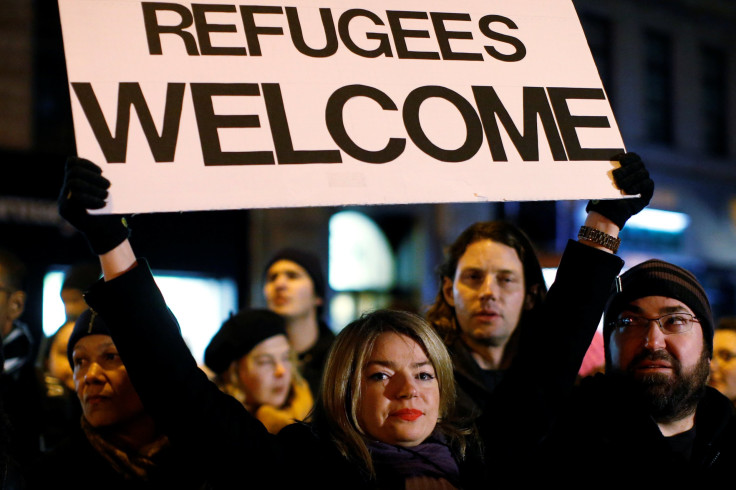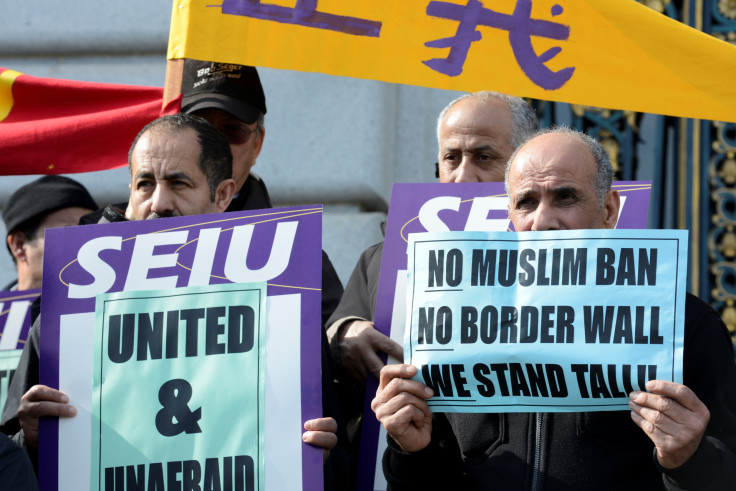Can Trump's Travel Ban Be Revoked? Justice Department Challenges Seattle Judge's Halt On Executive Order

The Justice Department will challenge a judge's temporary nationwide block on President Donald Trump's travel ban applicable to seven Muslim-majority nations, the White House said Friday night. Federal Judge James Robart of Seattle, had, on Friday, heard arguments from Washington state and Minnesota, which called the ban illegal and unconstitutional.
The White House initially issued a statement calling Robart’s order “outrageous,” but a revised statement omitted the word. The Justice Department now plans to file an emergency stay on Robart’s ruling.
"At the earliest possible time, the Department of Justice intends to file an emergency stay of this outrageous order and defend the executive order of the President, which we believe is lawful and appropriate," White House Press Secretary Sean Spicer said in a statement. "The president's order is intended to protect the homeland and he has the constitutional authority and responsibility to protect the American people."
While issuing his order on a nationwide block of Trump’s executive order — which puts in place a 90-day ban on visa-holders from seven nations, an indefinite ban on Syrian refugee admissions, and a 120-day ban on the entire refugee program — Robart wrote that the states have shown “immediate and irreparable injury” caused by Trump’s move.
“The executive order adversely affects the states’ residents in areas of employments, education, business, family relations, and freedom to travel,” he wrote.
“The work of the court is not to create policy or judge the wisdom of any particular policy promoted by the other two branches,” Robart wrote. “The work of the judiciary, and this court, is limited to ensuring that the actions taken by the other two branches comport with our country’s laws, and more importantly, our constitution.”

Following Robart’s order, Customs and Border Protection informed U.S. airlines to allow previously banned travelers from Iran, Iraq, Libya, Somalia, Sudan, Syria and Yemen to board flights. Individuals from these states who have proper visas can now board U.S.-bound flights.
“We are a nation of laws. Not even the president can violate the constitution,” Washington state attorney general Bob Ferguson told reporters outside the courtroom, according to the Guardian. “No one is above the law, not even the president.
“This decision shuts down the executive order immediately, shuts it down,” he added. “That relief is immediate, happens right now. That’s the bottom line.”
Since Trump signed his order on Jan. 27, and after travelers who were en route to the U.S. were either stranded at airports or were deported, there have been widespread protests against the travel ban. The State Department said Friday that nearly 60,000 foreigners from the seven countries had their visas canceled because of the executive order.
Protests over Trump’s travel ban continued Friday, including a large group that gathered outside the Kennedy International Airport in New York.
© Copyright IBTimes 2025. All rights reserved.





















